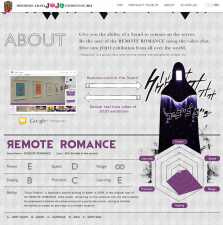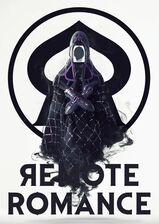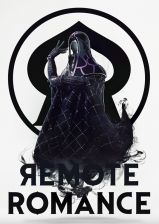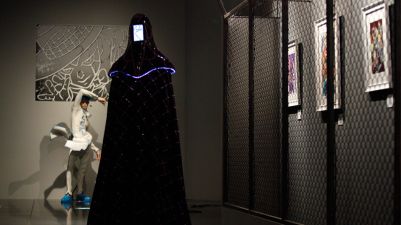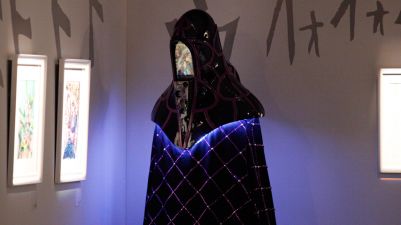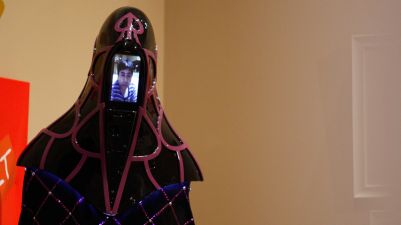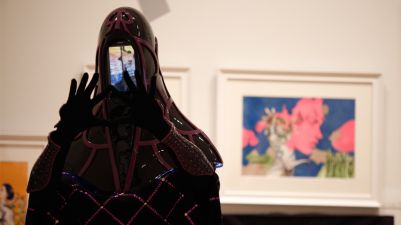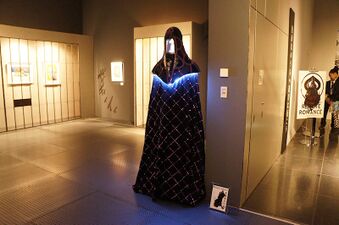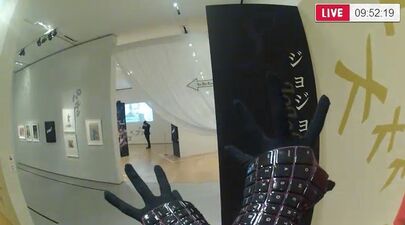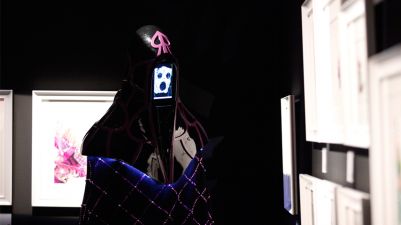Remote Romance
Remote Romance (リモートロマンス, Rimōto Romansu) is a Stand designed by Hirohiko Araki for the JoJo Exhibition 2012. Its purpose was to promote the art exhibition via internet live-streaming.
On select nights during the exhibition's residence, Remote Romance would "appear" in the gallery and wander the gallery, looking at pieces of artwork while under the "control" of users who accessed the gallery's live stream on Google+, with the Stand's point of view fed into the live stream as well as simultaneous feeds of the Stand being followed around the gallery and of people who logged in to "control" the Stand.
Appearance
Remote Romance is a humanoid Stand draped in a black and purple garment covering its entire body, making its shape less defined compared to other Stands. Its robe is covered in a shiny losange pattern contrasting the dark clothes. A screen covers its face and its gauntlets are covered with a keyboard pattern not unlike Chocolate Disco. Remote Romance's solid hood is also decorated with a symmetrical "R" motif. Incidentally, the hood can emit a low light from under it, lighting its chest in case the environment is dark.
History
The original user of Remote Romance was a legendary hacker named Dixie Flatline (ディキシー・フラットライン, Dikishī Furattorain) who was put to death in 2006. After his death, only his Stand remained on the network for anyone with access to a particular site to use it.
Abilities
Broadcasting: The Stand possesses humans who have access to a particular server and gives them the ability to project an alter ego to a remote location.[1]
Gallery
Trivia
- Dixie Flatline is the nickname of a character from William Gibson's novel Neuromancer. He was a hacker who had died, but a saved copy of his mind existed in cyberspace during the story.
Notes
- ↑ The album I Can See Your House from Here was called Remote Romance for its Japanese release.

